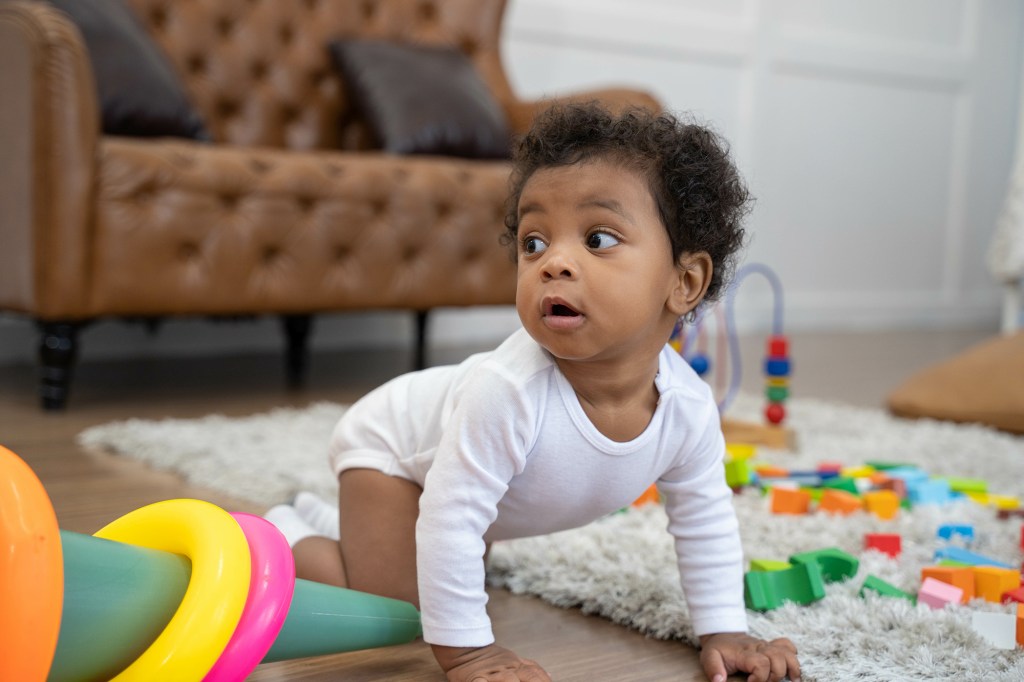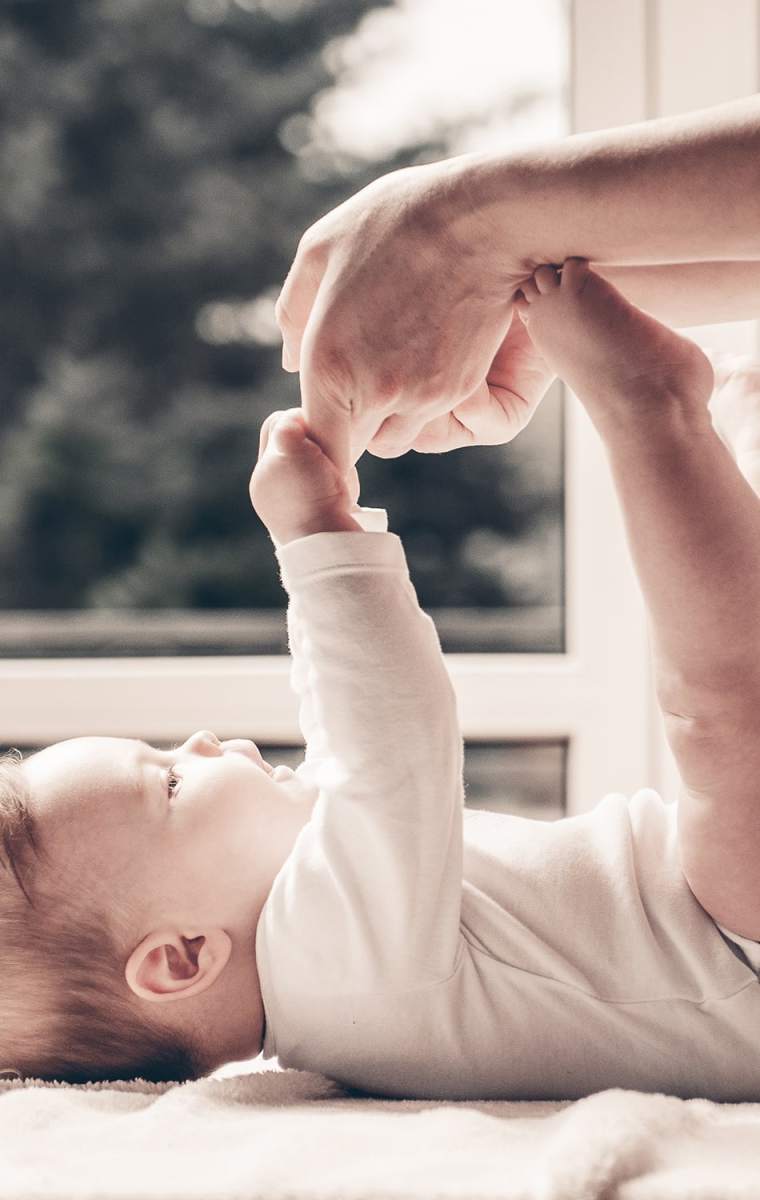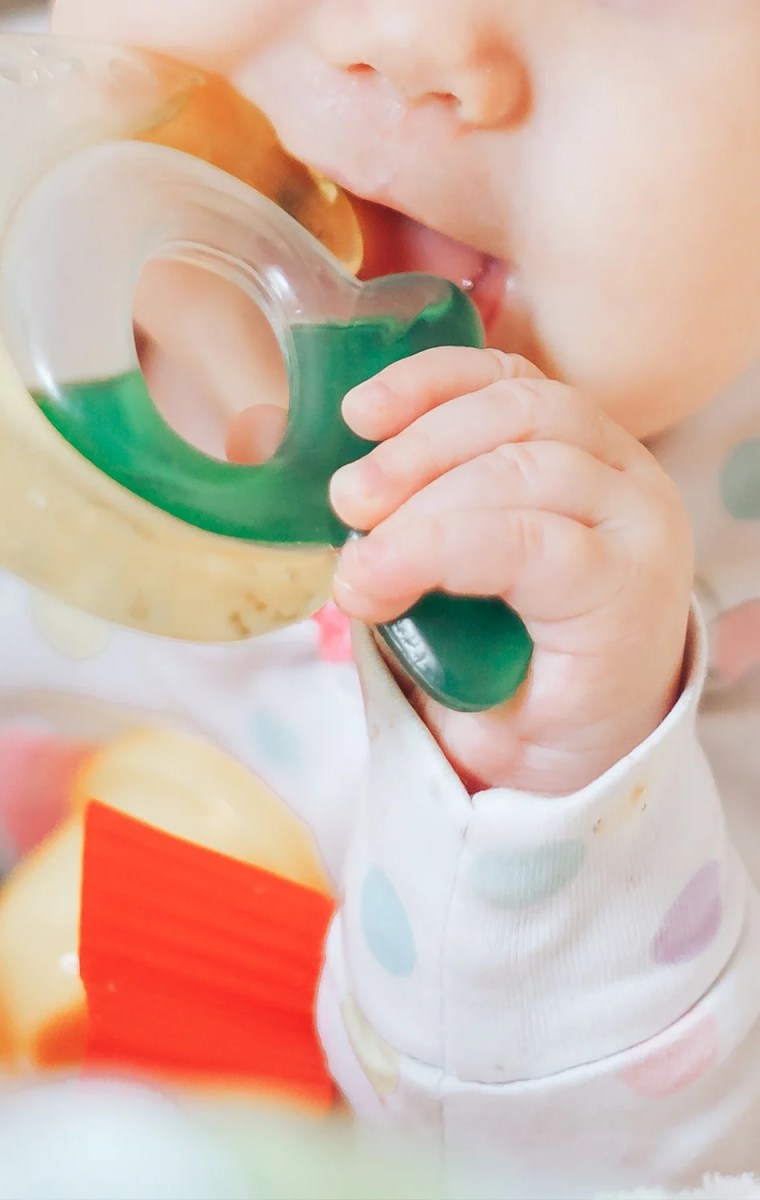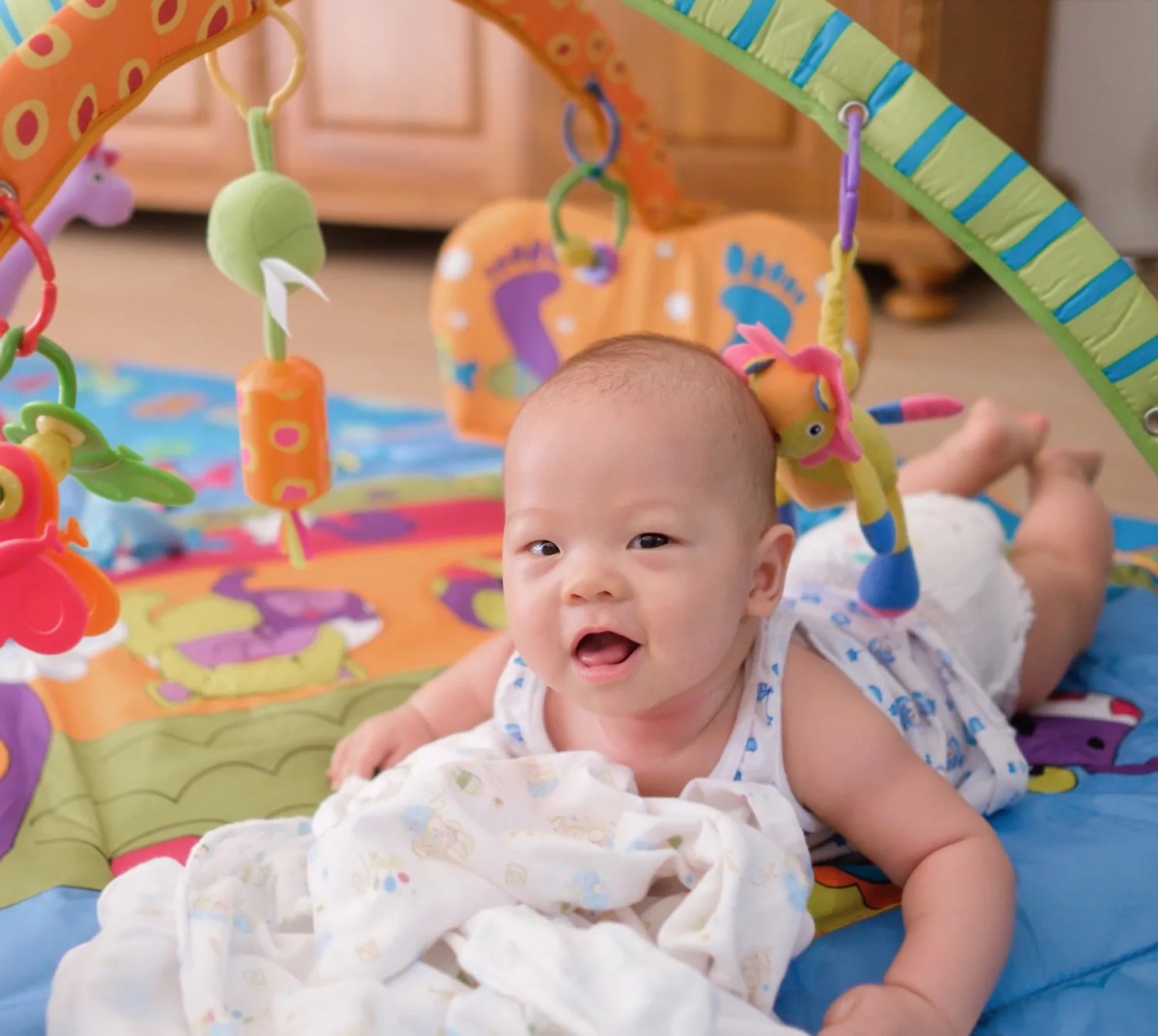Your cart is currently empty!
7 Month Old Milestones

7 month milestones are here. As your baby explores solids, it may be tempting to give them foods loaded with sugar or fruit. But what they eat today has far-reaching implications.
Here’s What You Need To Know:
- Your bundle of joy is creeping and crawling on their tummy.
- They are using two hands to touch and play with toys.
- Your baby is working on their pincer grasp — grabbing at foods between their index finger and thumb.
- You will hear lots of babbling, maybe even a ‘mama’ or ‘dada’.
- Your little one understands the word, “no.” (Use this to your benefit!)
- They can turn their head to visually track objects.
- They cling tightly to familiar adults.
Sweetie Pies
Science shows that sweet tooths are made, not merely inherited. The flavors kids are exposed to in the first 1,000 days have a profound impact on the flavors they will crave later in life. This is why it is particularly important to feed a broad array of healthy, real foods. The window is short. By their 3rd birthday, their dietary preferences are largely set. Studies have shown that infants who were regularly exposed to sugar water during infancy later preferred sweeter beverages as older children. Stay the course and stay away from sugar!




1. Your Baby’s Brain
By this point in your little one’s life, you’ve probably gained a good understanding of your baby’s personality. They might be calm and even-tempered. Or you might have a strong-willed, slightly more temperamental child. This can be hard. Some parents feel discouraged when other parents have a more easy-going baby.
Pediatricians and other medical professionals suggest that rather than trying to change your child’s temperament, you must accommodate it. As a parent, this means taking the time to use soothing language to talk your baby through moments when they seem frustrated or irritable. It also means taking the time to cuddle and soothe your baby, or adjusting the space where they play or sleep to be less frustrating for them. For example, if they’re fussy at nap time, try purchasing blackout shades or playing calming music until they fall asleep.
2. Your Baby’s Muscles
Your baby is the strongest they’ve ever been and can sit up on their own. This is important because exploring the world around them is a whole body exercise. According to studies, better control of self-sitting is correlated with better hand-eye coordination when reaching for objects.
3. Your Baby’s Tummy:
Your babe is eating more and more solid food and you may notice some changes in their diaper. Poop happens more frequently and appears in a range of colors and consistencies. Inside your baby’s belly, the gut biome is also transforming and becoming more complex. An infant might have 100 kinds of bacteria in their gut, in contrast an adult will have 1,000.
Many babies suffer from gas pain, which understandably causes fussiness and irritation. If you’re breastfeeding, consider temporarily eliminating gassy foods, such as dairy, caffeine, onions and spicy foods. If your baby is formula-fed, consider trying another brand to see how it affects their tummy.
4. Your Baby’s Speech:
Your baby is at or near the third stage of early speech development, which is often described as marginal babbling. This is when your baby is beginning to annunciate different vowels and consonants. For example, you will hear things like ‘maaaaaa’, ‘baaaaaa’, ‘daaaaaa’. This will be followed by a mumble-jumble of other sounds, bubble and raspberry blowing, and drooling.
Tiny Bodies & Big Moods
It is hard to imagine a 7-month-old detecting the nuances of our moods. They seem wholly preoccupied with eating, napping, crying and cuddles. But at 7 months, the foundation for empathy is being set. Research has shown that by 7 months, a child’s brain is processing human voices in the same part of a brain that an adult brain does. (The same is not true for infants.) But it’s not just about audio cues. At this age, babies are learning how to categorize facial expressions and reacts to touch.
The study, which appears in the journal Neuron, looked at brain activity in 32 infants as they listened to recorded sounds. 16 of the children were 4 months old and the other 16 were 7 months old. The 4-month-olds did not differentiate between human voices and nonhuman sounds (which included chickens clucking and a bell ringing). However, the 7-month-olds showed brain responses that showed distinct understanding between human and nonhuman sounds. The 7-month-olds also listened to human sounds with varying intonations (happy, sad, fearful, etc.) and they could differentiate mood.
A new study also showed that at 7 months, babies look longer at fearful faces than smiling ones. The results suggest that, by 7 months of age, infants possess the ability to categorize expressions.
Growing Pains
From the moment of conception, your baby experiences a phenomenal growth spurt. From 4 months to 7 months, your baby has been gaining anywhere from 1 to 1 ¼ pounds per month. This means that by the end of the 7-month period, your baby should weigh approximately two and half times what they weighed at birth. They should also be approximately 2 inches more in length than they were at birth. Go baby, go!
Keep in mind: Babies come in all shapes and sizes. It’s very common for parents to worry about whether or not their baby is too small, too big, or just right. Your baby may weigh over two and a half times their birth weight at this stage. Or, they may weigh less. While it may be difficult not to obsess over these numbers, what’s really important is which growth percentile they are in.
When your baby was born, they were placed into a certain percentile for both weight and height. As long as your baby remains more or less in the same weight and height percentile as when they were born, then they’re doing just fine. Of course, some fluctuation is natural – your baby may grow more or less in one particular month compared to another. However, according to the World Health Organization (WHO) as long as your baby doesn’t have a significant drop or gain in percentile, there is likely no need to worry.
At 7 months your baby is about 2.5x their birth weight and bone growth is significant. The more they weigh, the more weight on their bones as they start moving around. Make sure you get them the calcium they need.
Many babies also start teething at as early as 6 months. To check if your baby is teething, run your finger along their gums inside their mouth. If they’re beginning to teethe, you will feel hard, raised areas along the gum line. Those are teeth that are close to popping through the gum. If your baby is teething, there will also be a lot of drool. Get those burp clothes ready!

Summary
At 7-months-old, your little one is on the move! They can sit up, grab for toys, and maybe even crawl. Your little one is also exploring the exciting world of solid food. Remember, no two babies are the same. If your baby is more into breastfeeding and isn’t quite crawling yet, that is just fine!
Your baby is also learning how to understand and express emotions. They can make sounds that convey happiness or frustration, and can understand other people’s emotions, too.
While it might be tempting to plop your little one in front of the TV after a day of chasing them around, try to refrain. The American Academy of Pediatrics recommends no screens at all for children under the age of 18 months. Instead, encourage independent play time or read books together. Textured and “lift-the-flap” books are especially fun.











